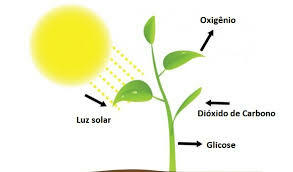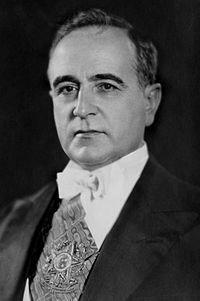THE syntax is the area of normative grammar responsible for the study of the relationships and combinations between the words in the utterance.
This area focuses on the study of each constituent element of the sentence. Let's study about the constituent terms of the clause?
Index
- Constituent terms of the clause
-
Essential terms of prayer
- Subject
- Predicate
-
Terms that are part of the sentence
- verbal complement
- nominal complement
- liability agent
-
Accessory terms of prayer
- Adjunct
- Adverbial Adjunct
- I bet
- Vocative
Constituent terms of the clause
For the effective construction of a prayer, the following are essential:
- essential terms: are elements that generate meaning to the prayer.
- integral terms: are words that only acquire full meaning with the presence of other sentences.
- Accessory Terms: despite being relevant to the understanding of the utterance, they may be unnecessary in the basic sentence structure.
Essential terms of prayer
The sentence structure needs the subject and predicate for the construction of an understandable statement. Below read the definitions and ramifications of these elements:
Subject
Subject is the term the rest of the prayer refers to. For example, in “The rain thickened more and more in the southeast”, “the rain” is the subject.
The subject has a base word called the nucleus. This word is the main one, as it is about it that the predicate says something.
The subject's nucleus consists of a noun or any other word with a noun value. Example: The rain it thickened more and more in the southeast. [“the rain” is the subject; “rain” is the core of the subject.]
types of subject
The subject can be classified as determined and indeterminate.
We have the determined subject when it is possible to determine that the element of the clause works as a subject. Example: Ricardo loved historical novels.
The determined subject can be subdivided into:
- simple subject
- compound subject
- Hidden subject
We have the simple subject when the sentence has only one nucleus. Example: A night is the symbol of lovers. [“night” is the core of the subject.]
We have the compound subject when the sentence has two or more cores. Example: books, letters and notes they are means of communication that are in disuse. [“books, letters and notes” are the subject's cores.]
The hidden subject, also called implicit or desinencial, happens when the nucleus is not expressed in the sentence, but is recognized by the verbal ending. Example: (Me) No I understood your proposal. [“I”, implicit but implied by the verbal ending, is the nucleus of the subject.]
O indeterminate subject it happens when it is not possible to determine the element of the clause that performs the function of subject. Example: People live well in São Paulo. [Who lives?]
In clauses like the ones above, where only the predicate is expressed, it is not possible to determine who the verb is referring to.
We still have the subjectless prayers. These prayers are made up of predicate only.
They are sentences built with the verb “haver” meaning “exist”, “do” or “happen”. Example: There is many corrupt state prosecutors. [verb “have” in the sense of “exist”.]
Or, with the verbs "to do", "to be" and "to be", when they indicate elapsed time or relative time to natural phenomena, and verbs that express natural phenomena such as: dusk, dawn, frost, etc. Example: Was late when he left the house. [verb “to be” indicating elapsed time.]
Predicate
O predicate is the term that contains the verb and informs something about the subject. Example: Immigrants they are homeless. ["they are homeless" is the predicate.]
To study in depth about the predicate, it is essential to know the verb that constitutes it.
verbal predication
The verbs that make up the predicate are significant verbs and are classified into intransitives and transitives.
You intransitive verbs they bring in them the complete idea of action, that is, they don't need complements. However, they may appear accompanied by expressions that indicate intensity, mode, place and time. Example: The flowers fell in autumn. ["fallen in autumn" is the predicate; “fell”, intransitive verb; “autumn”, idea of time.]
You transitive verbs they do not carry the full idea of the action in them, so they need other terms to complete their meaning. These other terms are termed as verbal complements or objects. Example: The writers needof recognition[“need recognition” is the predicate; “need” is the transitive verb; “of recognition” is the verbal complement.]
Transitive verbs are branched into:
Direct transitive: when it connects directly to your add-on. Example: The bourgeois made a profit. [“made a profit” is the predicate; “had” is the direct transitive verb; “profit” is the direct object.]
Indirect transitive: when it needs a preposition, therefore, it binds indirectly. Example: Me I believe in Jesus. [“I believe in Jesus” is the predicate; "I believe" is the indirect transitive verb; “in Jesus” indirect object.]
There is also the direct and indirect transitive verb, which has two verbal complements: one direct and the other indirect. Example: I wrote a note to the queen. ["wrote" is direct and indirect transitive verb; “a ticket” is a direct object; “to the queen”, indirect object.]
The predicate can still consist of connecting verbs. Binding verbs express state, but they are not as significant as intransitive and transitive verbs.
Connecting verbs link characteristic aspects to the subject, thus establishing relationships such as: permanence, transience, mutability, continuity and appearance. Examples:
Ruth é pretty. [express permanence]
Luís it is flu. [expresses transient state]
Fabius looks sad. [appearance state]
Elisa stayed beautiful girl in the red dress. [mutability state]
Predicate Types
According to normative grammar, the predicate can be classified as: verbal, nominal and verb-nominal.
O verbal predicate is one that informs an action. Examples:
- Free Online Inclusive Education Course
- Free Online Toy Library and Learning Course
- Free Online Math Games Course in Early Childhood Education
- Free Online Pedagogical Cultural Workshops Course
The teachers fight for better wages. ["fight for better wages" is the verbal predicate.]
the writers wrote their miseries. ["wrote their miseries" is the verbal predicate.]
O nominal predicate informs a state of the orational subject. Therefore, this predicate will be accompanied by the connecting verb. Examples:
- Beta is beautiful. ["is beautiful" is the nominal predicate]
- Dr. Roberto is happy. ["is happy" is the nominal predicate]
O verb-nominal predicate expresses action and state. Example: The poets returned from the conference happy. ["returned from the conference happy" is verb-nominal predicate; “returned” is the action and “happy” is the state.]
Terms that are part of the sentence
Some verbs and nouns, when present in a prayer, do not have completeness in themselves.
Therefore, its meaning is only integrated with the presence of other terms. These other elements are called the integral terms of the clause.
verbal complement
As we saw in verbal predication, terms that complete the sense of direct and indirect transitive verbs are called verbal complements.
Verbal complements are subdivided into direct object and indirect object.
Direct object
O direct object it is the element that completes the sense of a direct transitive verb, attaching itself to it without the help of the preposition. Example: Real estate sell houses magnificent. ["sell" is a direct transitive verb; “houses” is a direct object.]
indirect object
O indirect object is the element that completes the sense of the indirect transitive verb, associating with it through preposition. Example: Israel resisted the US attack. ["resisted" is an indirect transitive verb; “to the American attack” is an indirect object.]
nominal complement
O nominal complement is the grammatical unit that completes the meaning of a word that is not a verb, referring to a adverb, substantive or adjective, and attaching itself to them by means of a preposition. Examples:
The bad politicians acted unfavorably to the people suffered. [“unfavorably” is an adverb; “to the people” is a nominal complement.]
THE present sadness takes care of my heart. [“sadness” is noun; “of the present” is a nominal complement.]
my house is full of cockroaches. ["full" is an adjective; “of cockroaches” is a nominal complement.]
liability agent
The last dismemberment of the integral terms concerns the agent of the liability.
O passive agent is the term that indicates who or what practices the verbal action suffered by the subject. We will only identify this element if in the sentence the verb is in the passive voice and the subject is patient.
The passive agent is always followed by a preposition. Examples:
the city of light was surrounded of robbers. [“the city of light” is a patient subject; "of robbers" is an agent of passive]
The pie was made by my boyfriend. [“the pie” is a patient subject; "by my boyfriend" is passive agent]
Accessory terms of prayer
Accessory terms are expendable elements in the basic structure of the prayer.
However, they are important for the understanding of the utterance because they insert new information, specifying a noun or pointing out a particularity of the verb.
Adjunct
O adnominal deputy it is the element that accompanies the name in order to characterize it, individualize it or determine it.
It can be represented in the prayer by articles, adjectives, numerals, adjective phrases and pronouns adjectives. Example: At streaks colored they clashed at the sky blue. [“as”, “colored”, “no”, “blue” are adnominal adjuncts.]
Adverbial Adjunct
O adverbial adjunct it is the element that refers to the adverb, adjective and verb, designating them a situation.
This element can consist of adverbial phrases or adverbial expression and adverbs. Examples:
travel on weekends to Fernando de Noronha. ["on weekends" is an adverbial adverbial/adverbial expression.]
our time together passes quickly. ["quickly" is adverbial/adverb adjunct]
I bet
O bet it is the element that summarizes, develops and clarifies another element of the prayer. Example: Rio de Janeiro, the wonderful city, is in terrible condition.
Vocative
O vocative it is a term that does not support a syntactic relationship with another orational element.
It does not, therefore, relate to either the subject or the predicate. It is used to question or summon an individual. Example: Students, do the activity!
Read too: Verbal and nominal conducting
The password has been sent to your email.


